This retired engineer has mobility issues but at 60 is still hustling through his second act in life
After leaving a high-pressure career, Juraimi Rahmat's retirement has been anything but slow. From starting businesses to taking up a diploma, the 60-year-old Singaporean believes in keeping his mind active and contributing to society.
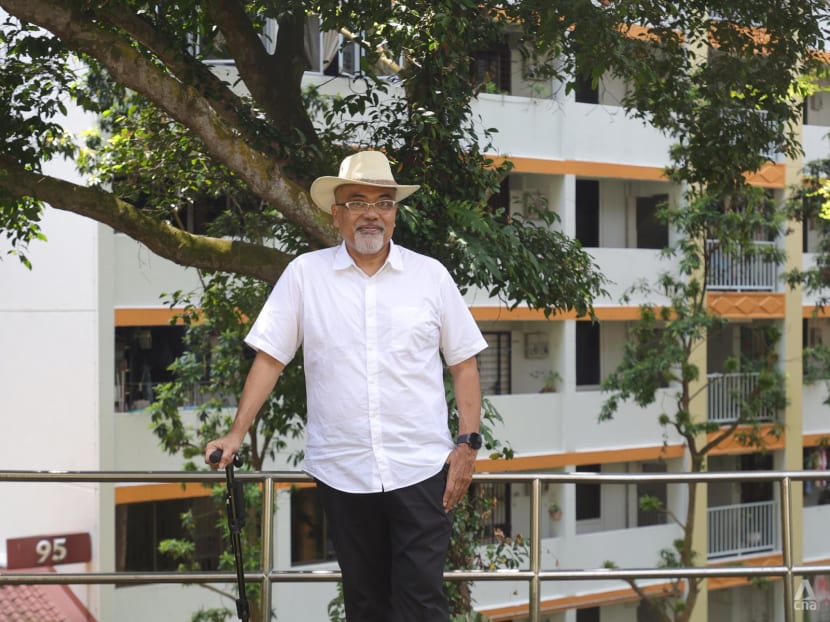
Mr Juraimi Rahmat standing in front of block 95, Commonwealth Drive, on Jul 22, 2025. He lived in the estate when he was a child. (Photo: CNA/Ooi Boon Keong)

This audio is generated by an AI tool.
To commemorate Singapore's 60th year of nationhood, CNA TODAY spoke to three citizens who are also celebrating their 60th birthday this year. Their stories reflect how the nation's growth and development affected their own lives, and what being Singaporean means to them.
For a good 30 years or so, Mr Juraimi Rahmat spent his life in what he described as a "high-pressure environment" that was the semiconductor engineering sector.
It involved shift work, and even on days when he was not working, he would sometimes still be put on standby, expected to respond speedily if issues arose at the factory.
So in 2019, when they were both still relatively young at 54, he and his wife decided to retire early from their full-time jobs.
But in true Singaporean style, that did not mean sitting around doing nothing with their days – the couple launched a small home-based business, Tasty Bites, distributing traditional snacks such as muruku and kerepek.
At the same time, Mr Juraimi launched Otternest, a company organising outdoor adventure programmes for schools and companies, at an outdoor camp site in Johor, Malaysia.
"I decided I wanted to do something else. The concept of retirement is that you get to do something that you like … you don't totally retire (from employment) but you get to do what you like, so it doesn't feel like a job," he said.
The couple have no children and their house was already fully paid off, which he said put them in an easier position to make that decision.
Listening to Mr Juraimi tell me his life story, I got the sense that he was a man who had found a way to carve out his own peaceful life even while witnessing Singapore's increasing hustle and bustle through the decades. After all, as a 60-year-old, he and the nation were "born" in the same year.
Indeed, one of the main observations he made about how this nation has changed over these past 60 years is how fast-paced life has become.
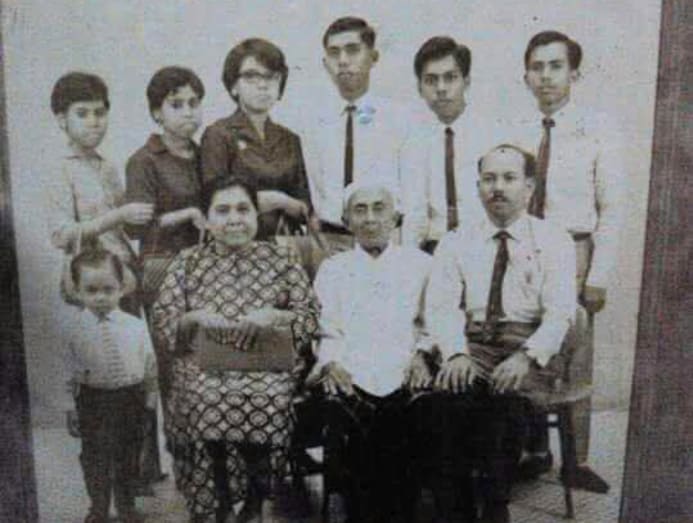
Mr Juraimi is the youngest of seven siblings born to police officer parents, and grew up in a three-room flat at 95 Commonwealth Drive – one of the earliest neighbourhoods where public flats were built.
As he took me on a tour of the old neighbourhood, he reminisced about how, even though it was an estate of flats, the "kampung" (Malay for "village") spirit was alive and well because people had more time to get together with their neighbours.
After walking back from school – the now-demolished Permaisura Primary School that he attended was just a 10-minute walk from his flat – he would have lunch at home before knocking on neighbours' doors to ask friends out to play.
As we walked around the estate, he pointed out the grass patches where he had played sports such as football, badminton and hentam bola with his friends.
"Sometimes, when I peered out of my window, some of my friends were already playing and I'd rush to join them," he said, adding that parents back then occasionally had to "chase" their children at dusk to make them come home.
These days, however, life has become so fast-paced that it has gotten harder to stay in touch with friends or even get to know one's neighbours, he said.
He recalled how, back in the day, because not everyone could afford a television, it was common for neighbours to visit each other's homes to watch shows together, for instance.
In contrast, a few years ago, he bumped into an old friend at Changi Airport, whom he had not met for several years. As they chatted and exchanged pleasantries, Mr Juraimi discovered that the friend had been living in the same housing block as him for years, and yet they had somehow never bumped into each other in the vicinity of their homes.
"Singaporeans (now) are busier, more stressed – sometimes they don't even have enough family time because of work," he said.
He added, too, that he and his wife would love to travel more with their friends, but they cannot do so, because many of their peers are still tied down by full-time jobs.
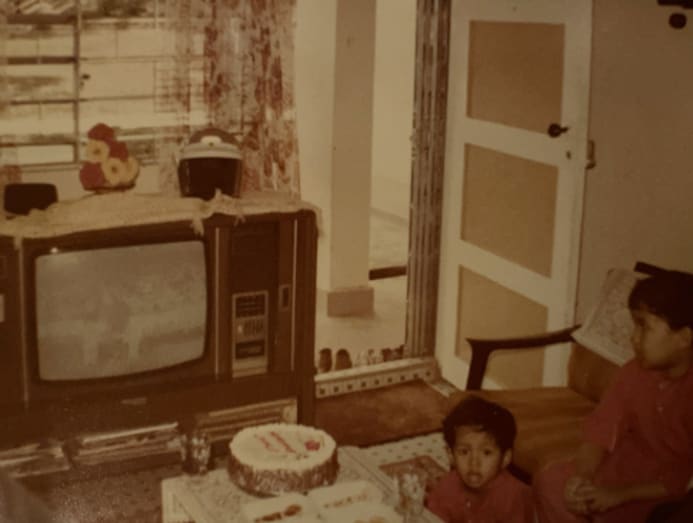
A PRODUCTIVE RETIREMENT
His peers may be busy with the daily grind, but Mr Juraimi has priorities of his own. These days, his main focus is to grow his businesses.
He pointed to Salaam Cola as a source of inspiration. The Dublin-based soda company, founded in 2023, has reportedly turned profitable without taking external investments and while donating a portion of its sales to help victims in conflict-afflicted places such as Palestine, Yemen and Syria.
He said that he aspired to grow his business to be able to do the same.
"We don't need much money," he added. "But if the business can be good, you can channel money to help others."
So passionate is he about this that he recently graduated from a two-month Workforce Skills Qualifications (WSQ) diploma course in sales and marketing conducted by @ASK Training.
And he did so despite having mobility challenges. He relies on a metal walking frame to get around, due to long-term injuries from his youthful, sporty days.
His doctor has suggested a hip replacement surgery, but has also allowed him to try therapy for a year to see if it helps to manage the pain.
Certainly, he is no stranger to pushing through challenges. His long career in semiconductor engineering took him to many cities around the world, where he had his fair share of both happy and stressful moments.
He recalled being so fascinated when he first stepped foot in the United States for work back in the 1990s, looking at "how big their cars were compared to most in Singapore".
However, he also could not forget some of the challenging moments he faced living and working abroad alone.
There was one particular trip to India where he was tasked to solve a problem.
"That was during Ramadan and I was supposed to be there for two weeks, so I had two weeks to solve the problem. If I couldn't solve the problem, I would have had to spend Hari Raya there (instead of with my family in Singapore)," he said.
Such moments still turned out to be invaluable learning experiences, he added, which was why he advised younger Singaporeans to seize such opportunities if they came.
"When you get to see other countries, you get to know their culture, their systems, and that gives you new ideas. Some ideas in Singapore, we learnt from overseas," he said.
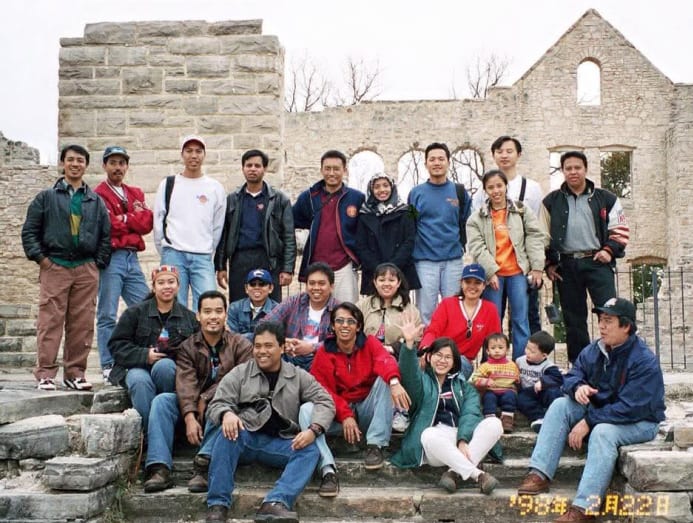
It is this love of learning that drove Mr Juraimi to take up that WSQ course, where he picked up new skills such as copywriting and online advertising that he hopes to apply to his businesses.
He described the course as "quite intense", saying that they had to prepare a 90-slide presentation as part of the coursework, among other things.
"I burnt the midnight oil but I didn't feel tired, because it's my interest," he said.
"Some people say that they want to relax (in retirement), right? For me, this is relaxing."
With the diploma done and dusted, Mr Juraimi said he is now building a website for his businesses.
He even has a dedicated home office set up in his bedroom, complete with a height-adjustable table and ergonomic chair.
"I believe that in retirement, you shouldn't just retire and do nothing. You have to occupy yourself to keep your mind active, by doing the things that you like so that it's not like a job."
Nonetheless, he is taking things a lot slower than when he was working full-time.
The snack business involves the couple making deliveries thrice a week on average, and Mr Juraimi has an additional "handful" of meetings in person or online each month with prospective clients of his outdoor camp business.
While the snack business is rooted in his wife's longtime interest in making and selling kuih, his involvement in the camp business can be traced back to his youthful athleticism and love for the outdoors.
He recalled how he played sports with his neighbourhood friends daily as a child, and mused that such an environment, where children had plenty of play time and the space to do it, was likely a key reason why Singapore's football scene thrived back in the day.
"In those days, you didn't have restrictions. You can play anywhere – as long as there's a grass patch, you can enjoy," he said.
Beyond free play with his friends, he was also training five times a week for a youth football club while in school.
He briefly considered a full-time career in the sport, though he decided against it as he decided that a more practical career in engineering would provide better job security.
He continued being involved in the sport, though, coaching young football clubs on a part-time basis until the COVID-19 pandemic hit.
A DIFFERENT "KAMPUNG" SPIRIT
Taking us on a tour around his old neighbourhood naturally brought back a lot of memories for Mr Juraimi.
From the seemingly small changes such as the erection of sheltered walkways almost everywhere, to bigger ones such as the vast expansion of the public bus and train systems, he said that Singapore has truly developed in many ways that have benefited people.
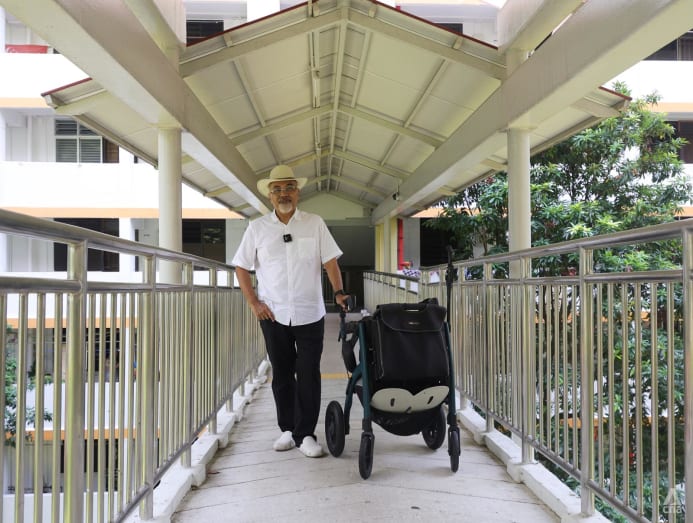
As someone with mobility issues, he particularly appreciates how Singapore has taken into consideration the diverse needs of the communities while building and redeveloping its infrastructure in recent years.
His little tour around the hilly neighbourhood of Commonwealth Drive, for instance, was made possible only because where once steep stairs stood, gradual slopes and ramps have been built, which could thus accommodate him and his walking aid.
Although people largely keep to themselves nowadays, he believes that the kampung spirit lives on in Singapore, though expressed in different ways.
For example, it may be getting rarer for everyone to gather and gotong-royong (Malay word for mutual help) when a family holds a wedding, but people still have a strong sense of civic mindedness and desire to help, he said.
"When I go around and people see me with my walking aid, people of all races – Chinese, Malay, Indian and all – will quickly step forward and ask if I need help and offer their seats and all that," he said.
And to him, it is this virtue that makes someone a true Singaporean.
"Wanting to help people, to do good in general and in society – that is what I feel is a trademark of a Singaporean."














